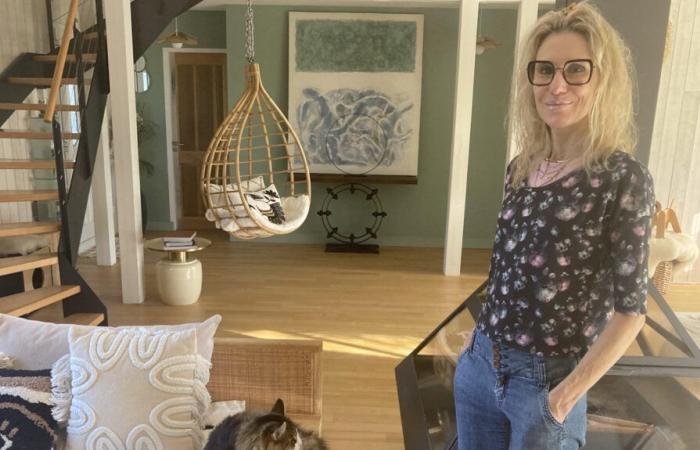When Barbara Chabbal (Interior Yours) set up as an interior designer in Fondettes in 2016, the websites displayed a limited choice of around fifteen professionals, between interior architects, decorators and space planners. . Since then, the Covid health crisis has appeared in 2020 and 2021. For the self-employed, “After the periods of confinement, the professional questioning of many employees and the plethora of growth in online training schools, the number of people setting up as interior designers or decorators has increased considerably. Today there are nearly a hundred, in Indre-et-Loire alone. »
Decorators: “A hundred in Indre-et-Loire alone”
Retraining after Covid has particularly increased in the following three sectors: well-being, life coaching and interior decoration. The planning issues are linked to teleworking and withdrawal into the family sphere. “This explains a market in strong expansion, sometimes close to saturation”, adds Barbara Chabbal. The decorator from Tours, who was trained for six months in an architectural firm in Paris, also denounces the current training offer “expensive and quick” and possible confusion with interior designers. The consequences of such an influx of professionals are multiple, first and foremost the precariousness of the profession (1).
The former urban planner at the City of Paris encourages students to go to the most prestigious schools such as the Boulle or Camondo schools in Paris in order to ensure solid training and real career opportunities. “I also advise them to aim for a specialization: 3D modeling, layout, architecture or decoration, in order to join a large agency and learn on the ground all the hazards of the profession. »
For Jérôme Courjault, “the profession of coach is poorly defined”.
© (Photo NR, Bruno Pille)
“There is coach and coach”
The coaching sector has also been strengthened, either through professional retraining after Covid, or to meet growing demand from human resources departments or employees. “In France, believes Jérôme Courjault, founder of the Euryèce Consulting firm, in Montlouis-sur-Loire, the job is poorly defined because there are a lot of things involved. I only talk about professional coaching from certified training courses that I have gone through. People who become coaches after retraining – particularly in well-being – think they are legitimate, when they are harming the profession. »
Three concrete cases come to the memory of Jérôme Courjault. Executives called on him either because they had the impression that their teams – working remotely – were no longer working during Covid, or because they had difficulty leading a team and imposing their points of view, or because they were overwhelmed with aggression towards their colleagues.
The professional thinks that confusion is possible with other contrary specialties such as consulting (advice), mentoring (methods), mediation or even psychology. “My job is not the needs of well-being or kindness. Either way, a life coach will predict that things will get better for you and will spout cooking recipes. » In Indre-et-Loire, there are nearly fifty affiliated to one of the EMCC (International Coaching, Mentoring and Supervision Council) and ICF (International Coaching Federation) unions.
(1) According to the national market study carried out in 2023 by Mathieu Hagel (head of a network of more than 60 architect and interior designer agencies), nearly 88% of those questioned declared an annual turnover less than €50,000 and 36% less than €30,000. After deduction of charges, we are far from reaching the minimum wage level: barely a half-time employee.
in numbers
> The professional coaching market in France is worth nearly 750 million euros.
> There are approximately 33,000 trained coaches and 15,000 active coaches (whether full-time or part-time).
> A study by the ICF union (2022) shows that there are more than 5,100 coaches in France who are members of a professional organization.
> Women represent 67% of professional coaches and have often had a significant career in the private sector.
> Coaches generally hold a higher education diploma and have an average of five years of seniority.
> Professional coaches operate under different statuses. Among the respondents, it appears, among other things, that 34% work as an employee in a firm, 23% are self-employed and 19% work as a non-salaried manager.






